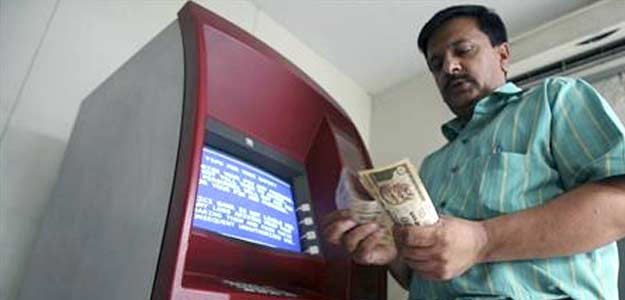Cardless Withdrawal From ATMs: How It Works.

Have you ever faced difficulty in transferring cash to a friend or
relative who does not have a bank account? Well, not any more. Many
lenders have started the facility of cardless withdrawals enabling
customers to transfer cash from their bank accounts to anyone with a
mobile number across India. The senders themselves can avail this
facility if they don't want to carry to carry the debit card (for
example while travelling) or have left the card at home.
Here's how the facility works:
1) The cardless cash withdrawal facility can be initiated by savings
account customers (senders) through mobile and internet banking. Some
banks allow this facility through cardless cash withdrawal-enabled ATMs.
The recipient may or may not be a bank customer.
2) To initiate a cardless withdrawal transaction, the sender must add
the name of the recipient to the list of cash withdrawal beneficiaries
and provide the mobile number, name and address to the bank.
3) Once the sender's request to register the recipient is accepted, the
fund transfer can be initiated. The sender will get a code on his/her
cell phone, which has to be passed on to the recipient.
4) The bank will also send an SMS with another code to the recipient's mobile.
5) The recipient has to visit the cardless cash withdrawal-enabled
ATMs, where cash can be withdrawn after entering both the codes and
mobile number.
6) Charges: Senders typically have to pay around Rs 25 per transaction for using this facility to send money.
7) Cancellation: A sender can cancel an unpaid transaction either
through bank's enabled ATMs or through bank's internet banking. However,
the transaction fee will not be refunded.
8) No additional fee is levied for cancelling a transaction.
9) Expiry: Some banks allow the transaction and code to be valid up to
14 days. Thereafter, in case the code is not used, the transaction
amount will be reversed to the sender's account. However, the
transaction charges will not be refunded.
10) Limit: Such transactions are capped at Rs 5,000 or Rs 10,000.
There's also a cap on the maximum amount that can be transacted per
account in a day. The maximum amount transferred per recipient cannot
exceed Rs 25,000 per month.

No comments:
Post a Comment